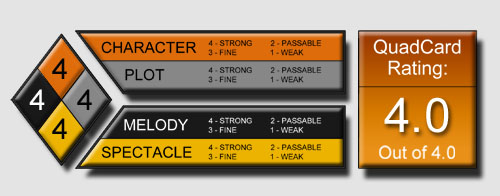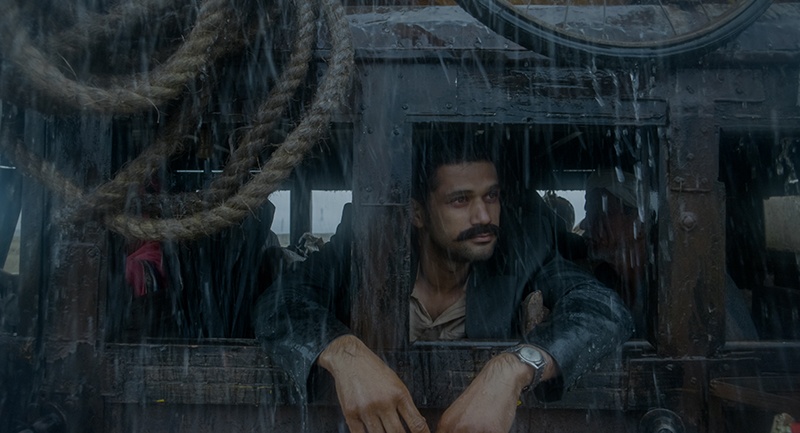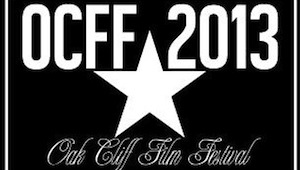
There are two distinct halves to Joss Whedon’s Much Ado About Nothing: one is a modern rendition of what’s arguably Shakespeare’s wittiest comedy, and the other is, well, a Joss Whedon film. Diehard fans of the Avengers director and all-around geek god will naturally flock to it, and for them, the joy of the project may well come down to the endless delight they experience at every single appearance made by members of Whedon’s regular stable of performers- Clark Gregg, Amy Acker, Alexis Denisof, Nathan Fillion, Fran Kranz, Sean Maher, and others still. It’s fanboy nirvana- Fred and Wesley verbally spar while Mal Reynolds and Agent Coulson yuck it up on the sidelines.
For everybody else- even those of us who converted to Whedonism after his 2012 contributions to Marvel’s grand franchising scheme and the horror masterpiece Cabin in the Woods– Much Ado About Nothing offers the chance to see what Whedon can do on a twelve-day schedule with naught but his cameras, his cast and crew, and a script full of Shakespearean language at his disposal. Shot during a break on the aforementioned superhero rumpus, Much Ado About Nothing captures a completely different side of Whedon as a filmmaker while also being a quintessentially Whedonistic picture; this is as no-frills a production as can be, but it’s also invested in characters and dialogue in a way that’s well-suited to his skills as a storyteller.
Following the formula of Shakespeare adaptations like Baz Luhrmann’s Romeo + Juliet, Whedon transplants the Bard’s words into a contemporary setting wholesale; he doesn’t change a single phrase, and instead contrasts the early modern English against modern environments and accoutrements. Even if he had altered the dialect at all, the respective stories of Beatrice (Acker) and Benedick (Denisof), and Claudio (Kranz) and Hero (newcomer Jillian Morgese) feel exactly like the sort of tales Whedon himself would tell- ones where lighter, frothier, more romantic elements alternate with darker, somber notes. Much Ado About Nothing is a tremendously funny story regardless of who tells it, but the text’s biting satire on male concepts of honor and loyalty goes to shocking lengths to convey its point; the key lies in maintaining a balance between the humorous and tragic components.
Whedon’s television fare doesn’t ever reach Shakespearean heights in terms of quality, but he knows how to deftly harmonize the cheerier and grimmer aspects of his narratives. In that respect, Much Ado About Nothing is an enormous success; Whedon strikes the right tone for every moment with ease. He permits his actors to go full Stooge for the film’s big comic beats, and he tightens the leash and directs them toward emotional breakdowns and outbursts when the central drama demands. Chalk it up to experience- Whedon, it turns out, hosts readings of Shakespeare’s work in his backyard on occasion, and Much Ado allegedly came from one of those informal sessions. If his cast has no more significant acquaintance with Shakespeare than that, it doesn’t show in the uniformly excellent performances (notably those of Kranz and Acker).
Above all else, Whedon and his actors understand the essence of Shakespeare’s original play- or at least he’s willing to come down on one side of the debate still taking place about its intended meaning. Does Much Ado About Nothing sing the praises of male loyalty and honor while endorsing their rights to extramarital dalliances? Or are women the truly faithful sex who have to put up with the foolishness of their men? Whedon firmly makes the latter interpretation, no surprise considering how much gender politics play a role in fare ranging from Buffy the Vampire Slayer, to Firefly, and even to The Avengers. The men here aren’t all irredeemable- save for Maher’s slimy Don John- but they are easily misled, quick to jump to conclusions, and overly sensitive.
G-S-T Ruling:
So what Whedon has done here is take Much Ado About Nothing, filter it through his own lens, and wind up with something that both feels fresh and stays true to its source. If nothing else, it’s refreshing to see this familiar group of faces operate on a relatively stripped-down stage when we’re so used to watching them in worlds where they’re accompanied by vampires, spaceships, and superheroes. Jazzy, quick, and utterly cool, Much Ado About Nothing is the kind of revealing experiment that blockbusting filmmakers should undertake more often.





2 Comments
Colin Biggs
I haven’t enjoyed many contemporary Shakespeare adaptations (Hamlet with Ethan Hawke) but this looks to change my mind.
Andrew Crump
Think of it as a good adaptation of Shakespeare instead of a Joss Whedon get-together. And try to see it with an audience containing as few Whedon faithful as possible. If one thing set my nerves on edge while watching this, it was the entire audience blowing up whenever any veteran of Buffy, Angel, or Firefly did literally anything.